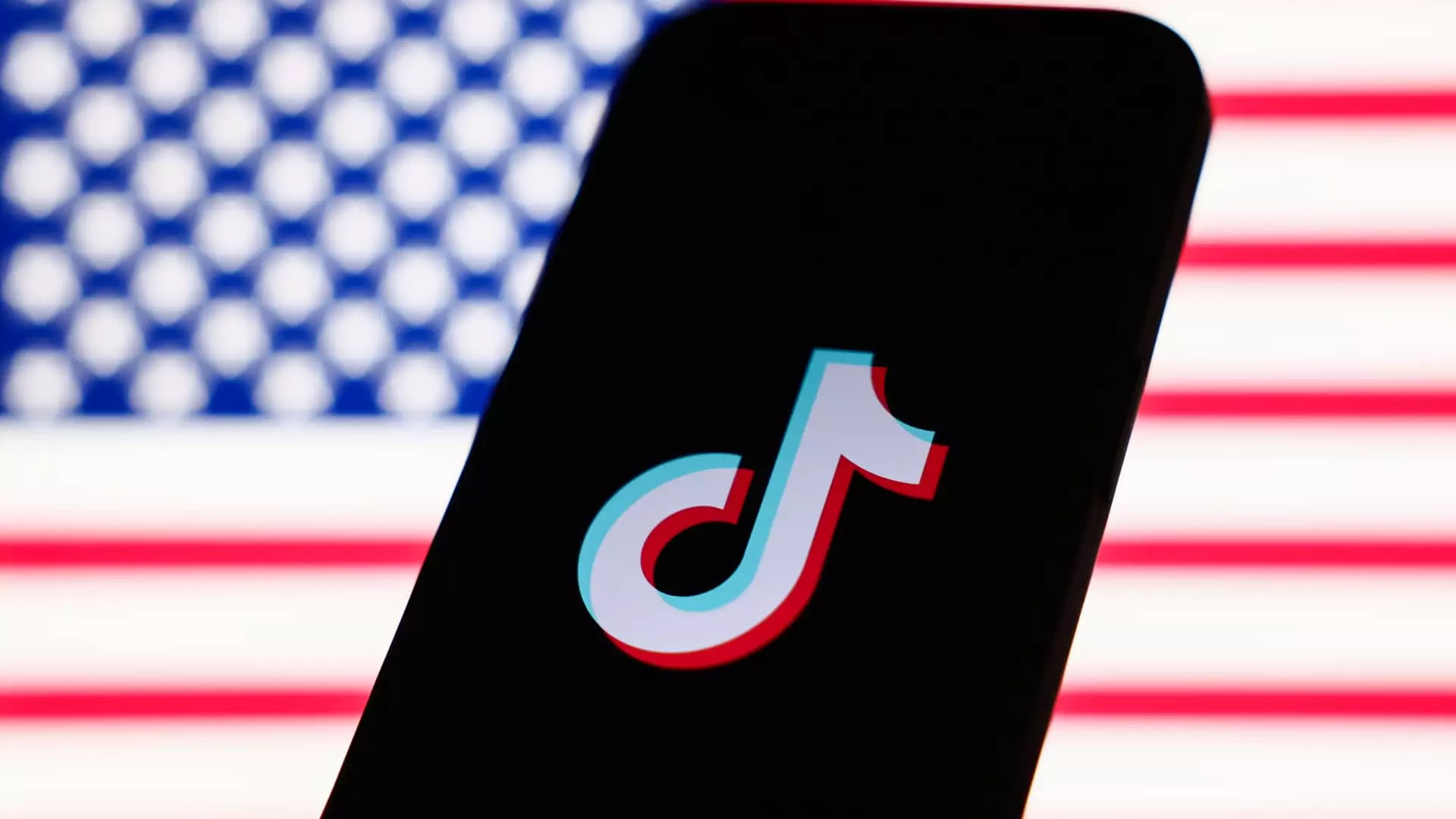The digital landscape has become a battleground where users, privacy concerns, and corporate ambitions collide, particularly evident in the ongoing discourse surrounding TikTok’s operations in the United States. As the app faces a potential ban linked to national security issues, one can’t help but wonder what this means for its parent company, ByteDance, and prospective buyers willing to take on this political hot potato.
Valuation Under Fire: The Implications of a Potential Sale
With ByteDance amid discussions regarding the fate of TikTok’s U.S. unit, speculation grows over the financial ramifications of such a move. Estimates from well-placed analysts suggest a staggering valuation ranging from $30 billion to $50 billion. CFRA Research’s Angelo Zino placed TikTok’s worth at about $40 to $50 billion, a notable decline from prior estimates of over $60 billion prior to a national security bill’s passing. This downturn strikes at the heart of a broader concern: how viable is any sale when driven by the specter of regulatory oversight?
Factors informing this valuation include an analysis of TikTok’s monumental user base—approximately 115 million users in the U.S. alone. This places TikTok in a competitive shadow just behind Instagram and well above competitors like Snapchat and Pinterest. Yet market intelligence firm Sensor Tower suggests that the app’s user growth is tempered by rising scrutiny and geopolitical tensions, which have a tendency to deflate financial forecasts.
ByteDance’s predicament reflects a dual pressure from the Chinese government and the U.S. administration, which broadens the stakes for would-be buyers. The fears surrounding user data privacy and encryption have thrust TikTok’s fate into the national spotlight. Analysts posit that any buyer, like Elon Musk or others, would have to navigate a complex regulatory landscape that risks crippling the app’s operations in the U.S. Even if ByteDance opts to sell, the compromises related to its valuable algorithms—designated as vital components that many believe underpin TikTok’s appeal—further convolute an acquisition scenario.
The algorithms and their potential ties to China’s government are central to ongoing fears of espionage or data misuse. Consequently, analysts from Bloomberg Intelligence argue that finding a buyer who can both afford TikTok’s price tag and effectively deal with the resultant regulatory fallout is a daunting challenge.
The competitive landscape for social media applications cannot be ignored either. As TikTok navigates this uncertain terrain, rivals are positioning themselves to catch any user base shifts resulting from possible changes in TikTok’s operations. As noted, platforms such as Instagram and Snapchat are continuing to innovate and attract users, increasing the stakes for potential buyers who hope to acquire TikTok while not losing sight of the divergent trajectories of its competitors.
Furthermore, with the looming idea of a “forced sale,” prospective buyers must be judicious. The challenge is not just financial; it is a chessboard loaded with intricate pieces. For instance, any company seeking to leverage TikTok’s revenue-generating capabilities must grapple with potential backlash from users wary of their data being mishandled. The pressure to demonstrate responsibility and transparency will weigh heavily on any acquirer.
In this high-stakes environment, various bidders have thrown their hats into the ring. Entrepreneurs like Kevin O’Leary have expressed interest but have put limits on financial willingness, offering significantly lower figures—$20 billion—compared to earlier estimates. Moreover, O’Leary argues that his bid would be “free from regulatory scrutiny,” a claim that raises eyebrows considering the pervasive atmosphere of oversight surrounding digital platforms.
Other bidders, including a consortium led by billionaire Frank McCourt, bring a different edge, which could either stabilize or add complexity to the proposed sale. Their ability to navigate through hurdles remains to be seen as ongoing public and governmental scrutiny cast shadows on intentions.
As the clock ticks, the future of TikTok remains shrouded in uncertainty. While potential buyers eye the enormous user base and monetization prospects, they must also squarely face the realities of regulatory scrutiny, geopolitical fallout, and a precarious public perception. Investors and analysts alike must ponder whether the rewards of acquiring TikTok broaden the scope of innovation in the social media landscape—or if they merely invite trouble from which few can emerge unscathed. In this intricate game of digital chess, every move counts, and complacency could prove costly.


Leave a Reply